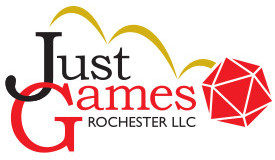Pillars of Creation – A series of games that feature themes that revolve around myths from across the globe and human history. These Kickstarter games are now available early at Just Games.
About Solani

Populate the night sky with beautiful constellations assembled from uniquely shaped tiles.
Solani is an abstract tile-laying and drafting game for 1-4 players.
Players will assemble constellations to be set into the sky, taking turns selecting two different shapes of tiles in a unique “double-headed” snake draft, before laying them onto their personal board. Properly connect the stars, observe the roaming planets, and correctly identify the placement of celestial bodies to complete your constellations puzzle in the best possible way.
After twelve rounds of play, Coyote grows impatient; he grabs the edge of the buckskin rug and tosses the rest of the quartz skyward – creating the Milky Way.
About The Girl who Made the Stars

The girl reached into the wood ash and grabbed a palmful, and as she blew it from her palm, the ashes swirled and churned as they moved skyward, lighting up the once dark skies.
The Girl who Made the Stars is a worker placement/tile-laying puzzle game for 1-4 players based on a San African myth about the creation of the milky way and the stars.
In the time of the first people, the night sky was dark and featureless. The village elders prohibited venturing out into the dark starless night for fear of the dangers that lurked there. One night after her mother cooked dinner, a young girl, frustrated with these restrictions, took a bit of ash and roots and cast the red and white embers into the sky, forming the milky way and the other stars, in an attempt to illuminate the night so the villagers could safely collect resources necessary for their survival.
As a village elder, gaze upon the new stars in the night sky and discern the forms of constellations to provide wisdom and illumination to the village. Draw constellations into the earth, with your depictions gaining light, stars, and stardust for the village. Then, as villagers guided by this newfound light, venture into the surrounding darkness to collect much needed resources, including fruit, fish, and small and large game. The resources you collect for the village will boost your reputation, and the player with the highest reputation at the end of the game is the winner.
Buy online from Just Games or stop in

More from Final Frontier Games
Pillars of Creation Philosophy
With the introduction of our Pillars of Creation series, we are committed to making a noticeable change to bring more inclusion to the board game world. Here is how we are trying to achieve that:
Theme
Choosing games with themes that highlight a myth or story that hasn’t been told in popular media or through board games yet. Our first two games each tell stories about the creation of the stars, Milky Way, and constellations told from the perspectives of the Navajo people of North America, and the San people of Africa, respectively.
Weight
Selecting and developing games that are light to medium-light in complexity. We love heavier games, and will continue to make them, however, this series will aim to be playable by a wider audience than some of our other games.
Inclusion
Working with diverse teams and cultural sensitivity experts to ensure our depictions are accurate, respectful, and educational.
Our approach to making sure our games are respectful of the cultures involved, is a two step approach.
First, we do our own research. We have to make sure the game fits our above criteria, and also evokes a compelling game experience. By doing due diligence, we can educate ourselves about the chosen theme, and will often make adjustments to the theme, mechanisms, or details based on what we’ve learned.
The second step is hiring and working closely with a cultural consultant to ensure that the depictions in the game are accurate, the language is respectful, and any important aspects we may have missed are included. The “sin of omission” is the most common thing we encounter when doing our own research, and part of what makes a cultural consultant so necessary. When viewing a story, it is easy to read it in a vacuum, removed from the appropriate context. There’s not as much material to educate on if a certain story is still told, or if there is a popular variation, or if the story is irrelevant, or if the story is an allegory for a different meaning that is lost, etc.
We are committed to bringing more games, more stories, more voices, more artists, and more diversity to the tabletop industry. We hope the Pillars of Creation series ends up being a meaningful step towards these goals.
Thanks for joining us on this journey!
